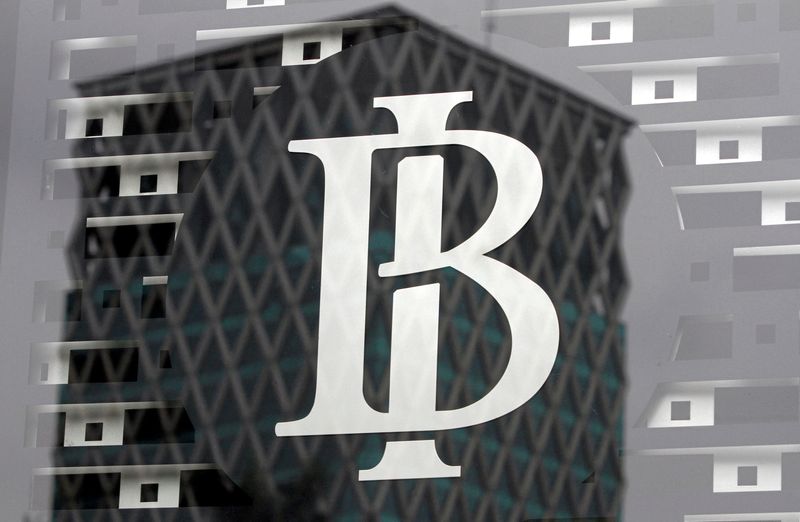By Gayatri Suroyo and Fransiska Nangoy
JAKARTA (Reuters) - Indonesia's central bank will review policy rate levels in the third quarter to head off any spike in inflation next year, Governor Perry Warjiyo said on Thursday, after it decided to keep rates unchanged for now to bolster an economic recovery.
Bank Indonesia (BI) kept steady its benchmark 7-day reverse repurchase rate at 3.50%, as widely expected in a Reuters poll. Its two other main rates were also left unchanged.
The decision came after Southeast Asia's largest economy reported 5.02% growth in the fourth quarter as consumption perked up following the easing of coronavirus mobility restrictions and a booming commodity prices pushed exports to record highs.
Warjiyo told an online news conference inflation will remain benign this year as production capacity will be able to meet rising demand, while reiterating that policy rates will be unchanged until inflation fundamentally rises above BI's 2% to 4% target range.
"Our prediction is that will happen in 2023 and for that, we will review our monetary policy stance, especially interest rates in the third quarter of this year," he said.
Inflation climbed to within BI's 2% to 4% target range for the first time in nearly two years in January, at 2.18%.
Warjiyo has said the main focus for BI's monetary policy is maintaining financial market stability amid a global trend toward monetary tightening.
He noted that uncertainty is rising due to geopolitical tensions, high global inflation and rising COVID-19 cases, but he expected the rupiah currency to remain stable due to improving fundamentals.
BI maintained the 2022 GDP growth outlook at 4.7% to 5.5%, expecting the spread of the Omicron variant to have an "insignificant" impact.
"With the Federal Reserve priming to hike rates as early as March and with the Indonesian rupiah coming under pressure in the early goings of 2022, we believe BI could be closing in on a potential reversal of its stance in the near term," ING analysts wrote in a note, expecting the first rate hike in the second quarter.
The rupiah has lost 0.7% against the dollar so far this year.
Capital Economics said it expects BI to raise interest rates once by 25 basis points (bps) this year, followed by more in 2023.

In the past two years BI has slashed interest rates by 150 bps and injected over $60 billion of liquidity into the financial market to cushion the economy from the pandemic shock.
BI last month announced plans for three reserve requirement ratio hikes totalling 300 bps between March to September in anticipation of U.S. interest rate hikes.